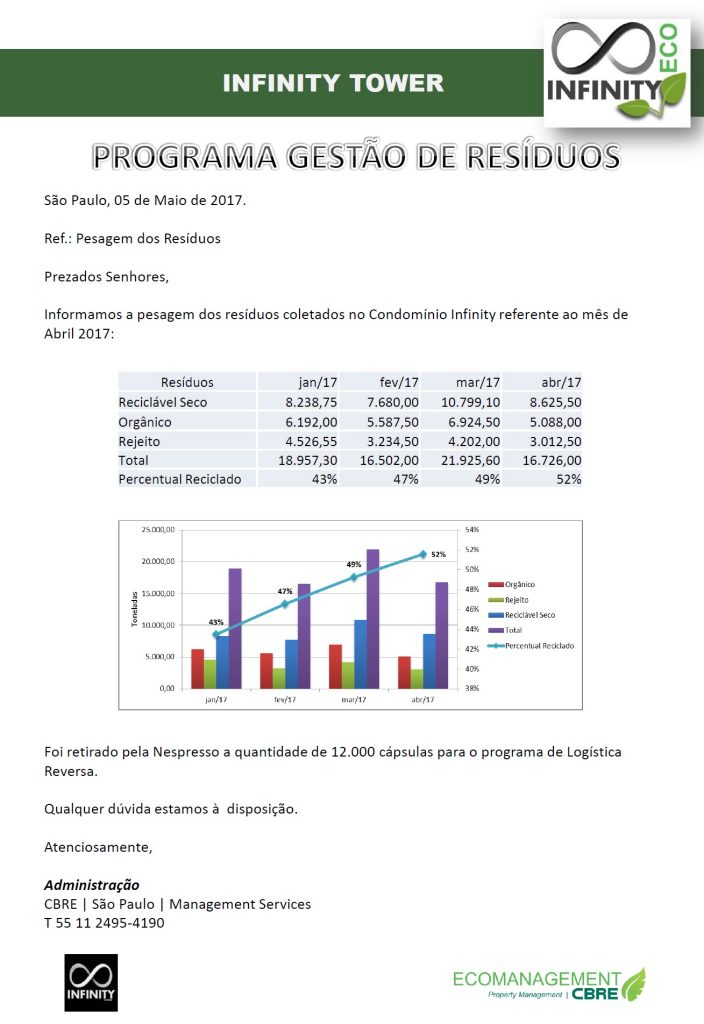This article is part of a series of selected ESG case studies submitted by participants in the 2017 GRESB Real Estate Assessment.
The Waste Management Program was responsible for building occupants awareness of the correct waste collection and disposal and increased waste diverted from landfill.
Purpose of the project
In Brazil, near 41% of all the generated waste is inappropriately disposed. The Waste Management Program of the Infinity Tower addresses all the generated waste in the building. It was verified that the Infinity Tower generated a high amount of recyclable waste that was being disposed to landfills and there was an opportunity of increasing the waste diverted to recycling and reduce waste management costs. Organic, hazardous and electronic waste strategies were, also, discussed pursuing a more sustainable operation.
Approach
The solution was to implement a management waste program, correctly collecting, categorizing and disposing the generated waste. The collection starts with the building occupants in each floor, the collected waste is, then, packaged by material type in the main waste storage room and sent to the recycling site. Organic waste is diverted to composting, and it is used in the green areas of the building as organic fertilizer. Electronic and Hazardous waste signs were used to encourage the occupants in the adequate separation.
Implementation
The Waste Management Program stated being applied in November/2016 and it is applied to the whole building. In the 2017 first trimester, the waste management cost has been reduced by 30% and the recycled waste already represents 52% of the total waste. The expectation is to achieve a 50% cost reduction throughout the year.
Results
The key factor, as well as the limitation, is in the occupants’ collaboration in the correct destination of each waste type in the floors. The results are directly proportional to the collection quality. The collection team also had a specific training that was essential to the program success.
References
www.arueira.com
This case study was submitted by GTIS Partners.
